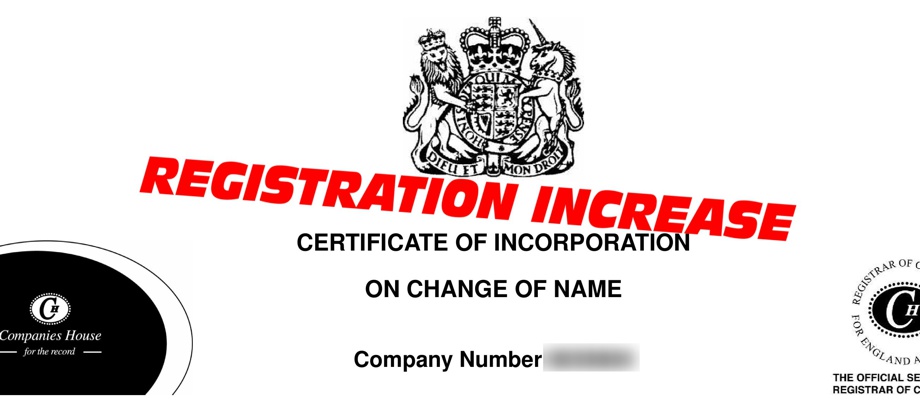
Have you ever wondered what it takes to incorporate a company in the UK? Understanding the costs associated with UK company incorporation and registration can be a pivotal step in your entrepreneurial journey. Let’s break down everything you need to know about the fees involved and how to make the process smoother.
What is Company Incorporation in the UK
Incorporating a company means legally establishing a business entity that is recognized by law. This comes with distinct advantages, such as limited liability and tax benefits. You’ll need to navigate various fees as part of this process, but knowing them upfront can help you plan your budget effectively.
Types of Companies in the UK
Before diving into the fees, it’s essential to know that in the UK, you can choose from different types of company structures:
- Private Limited Company (Ltd): The most common structure. It limits the personal liability of its shareholders.
- Public Limited Company (PLC): A company that can sell shares to the public. It has stricter regulations and higher requirements.
- Limited Liability Partnership (LLP): Combines the features of a partnership and a corporation, often favored by professional service businesses.
- Sole Trader: Not a company per se, but a popular model for self-employed individuals. It has fewer registration requirements but offers no limited liability.
Initial Registration Fees
When you start your incorporation journey, the first set of fees you’ll encounter are the initial registration fees.
Companies House Registration Fee
The primary expense when registering a new company in the UK is the Companies House registration fee. You can register your company online or by post, and the fees differ depending on the method.
- Online Registration: Typically costs £50 and can be completed within 24 hours.
- Paper Application: Costs £71 and usually takes 8 to 10 days to process.
Choosing the online option is often more economical and quicker. Consider your needs when deciding how to proceed.
Additional Costs to Consider
Once you have the basic registration fees sorted, it’s essential to consider other potential costs that could arise during the incorporation process.
Accounting and Legal Fees
Depending on your expertise and familiarity with UK regulations, you might want to hire professionals to handle your company formation, legal documentation, and accounting.
- Solicitors: If you employ a legal professional, they may charge between £300 to £1,000 for setting up a company.
- Accountants: Hiring an accountant for ongoing financial advice can cost from £150 to £500 per hour, depending on complexity.
This can be a very worthwhile investment to ensure compliance and correct setup.
Business Bank Account
Most companies need a dedicated business bank account. Some banks may charge a monthly fee or transaction fees, which could vary significantly. This cost can range from £5 to over £20 per month, based on the services you choose.
Insurance Costs
While not a registration fee, insurance is integral to protecting your business. Various types of insurance may be required or advisable, such as:
- Public Liability Insurance
- Professional Indemnity Insurance
- Employers’ Liability Insurance (if you have employees)
Insurance premiums can vary widely, but budgeting anywhere from £100 to several thousand a year depending on your business size and sector is prudent.
Ongoing Fees After Incorporation
Once your company is incorporated, there are ongoing costs that you will need to be mindful of.
Annual Confirmation Statement
Every year, you must file an annual confirmation statement, confirming your company details. This ensures that Companies House has the most current information. The fee for the confirmation statement is currently £34 if filed online, or £62 if filed via paper.
Corporation Tax
As a company owner, you need to register for corporation tax within 3 months of starting to trade. It’s crucial to keep up-to-date with tax regulations and prepare for your annual tax return.
Accountancy and Payroll Costs
You might choose to keep an accountant on retainer for ongoing services. Should you employ staff, managing payroll will entail additional fees.
- Annual Compliance Costs: Many companies spend around £500 to £1,500 annually for accounting and tax filing.
- Payroll Service: If you hire a third-party payroll company, expect to pay anywhere from £20 to £200 per month.
Overall, these fees can add up quickly, especially in the early stages of your business.
Costs Specific to Your Business Structure
Different business structures come with unique fee obligations. Knowing these will help you budget accurately.
Private Limited Company (Ltd)
If you’re establishing a Private Limited Company, you will incur the fees already mentioned, such as:
- Registration Fee: £50 online or £71 paper
- Annual Confirmation Statement: £34 online
Public Limited Company (PLC)
For a Public Limited Company, the costs increase due to additional regulations and requirements:
Limited Liability Partnership (LLP)
With an LLP, consider the following costs:
- Registration Fees: Similar to a Private Limited Company at £50 (or £71 via paper).
- Tax Compliance Costs: The LLP is taxed based on individual members, not at the entity level, so professional advice on tax treatment may be needed.
Summary of Your Business Budget
To summarize, if you’re looking to establish a Private Limited Company in the UK, you should expect your initial costs (including registration and professional advice) to range from around £500 to several thousand pounds, depending on how you choose to set up and manage your finances. Ongoing costs, including taxes, compliance, and services, will also need to be factored into your yearly budget.
Additional Steps in the Incorporation Process
Once you have a good grasp of the fees, it’s time to consider the other critical steps in incorporating your business.
Step 1: Decide if a Private Limited Company is Right for You
Before proceeding, ensure that forming a private limited company is the best structure for your business. This type of company:
- Limits your personal liability to the amount of share capital you’ve invested.
- Requires compliance with specific statutory regulations.
Step 2: Choose a Name for Your Company
- The name must be unique and not similar to existing company names.
- Avoid offensive or sensitive words unless you have permission to use them.
- Add “Limited” or “Ltd” at the end (e.g., “ABC Services Ltd”).
- Check the availability of your chosen name on the Companies House website.
Step 3: Appoint Directors and a Company Secretary
- Directors: At least one director is required, who must be at least 16 years old. Directors are legally responsible for the company.
- Company Secretary: Optional but can be helpful for administrative tasks.
You’ll need:
- Full names
- Date of birth
- Nationality
- Ocupation
- Residential addresses (kept private)
- Service addresses (publicly available)
Step 4: Decide on Shareholders and Shares
- Assign at least one shareholder (can also be the director).
- Decide how many shares to issue and their nominal value (e.g., £1 per share).
- Define the percentage of ownership and voting rights.
Step 5: Prepare Memorandum and Articles of Association
- Memorandum of Association: A legal document signed by all initial shareholders agreeing to form the company.
- Articles of Association: Rules for running the company, covering director powers, shareholder rights, and more. You can use standard templates provided by Companies House or draft custom ones.
Step 6: Decide on a Registered Office Address
- This is the official address where the company will receive correspondence.
- It must be a physical address in the UK (not a PO box).
Step 7: Register Your Company with Companies House
You can register:
- Online at the Companies House Web Incorporation Service (£34 fee, usually processed within 24 hours).
- By post using Form IN01 (£71 fee, takes 8–10 days).
- Through a formation agent or accountant for a faster and guided process.
Information needed for registration:
- Company name
- Director(s) details
- Shareholder(s) details
- Registered office address
- SIC (Standard Industrial Classification) code(s) to describe your business activity.
Common Mistakes to Avoid
Incorporating a company can be exciting, but avoiding common pitfalls will help streamline your journey.
Ignoring Professional Help
It’s essential not to overlook the benefits of consulting with a legal or financial professional. They can navigate complex regulations and save you from expensive mistakes.
Underestimating Ongoing Costs
Many new business owners mistakenly focus only on initial costs without considering ongoing fees, which can lead to cash flow issues down the line. Always budget for annual costs, including taxes and compliance.
Neglecting Compliance
Keeping your company compliant with UK regulations is non-negotiable. Staying up to date with the latest requirements will save you time, money, and potential legal issues.
Conclusion
Navigating UK company incorporation and registration fees can be complex, but understanding the various costs upfront can lead to more informed decision-making. Building a solid foundation for your business will equip you with the knowledge to flourish.
Always remember, care in the beginning stages can reap significant rewards as you grow. With careful planning and attention to detail, you’ll be well on your way towards establishing a successful and legally compliant business in the UK.





